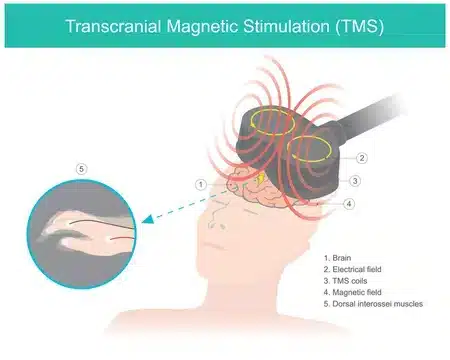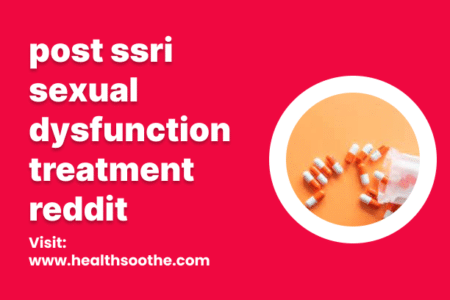There are many options for managing mental health issues. The treatment choice will depend on the individual’s specific symptoms, preferences, and needs. Two popular methods for managing depression are antidepressants and TMS treatment. Both approaches are effective in treating depression, but they work in different ways.
Prevalence of depression and the importance of effective treatment
Depression is a common mental health disorder affecting millions globally and is the leading cause of disability. Depression can significantly impact a person’s quality of life, affecting their ability to work, study, and maintain relationships. It can also increase the risk of other health problems like heart disease and stroke.
Effective treatment for depression is crucial to help people manage their symptoms, so they can function and enjoy a better quality of life. Untreated depression can develop into long-term emotional and other health problems.
What is TMS therapy?
TMS (transcranial magnetic stimulation) therapy is a non-invasive procedure that generates magnetic pulses to activate or inhibit nerve cells in areas of the brain. During a TMS therapy session, the patient sits in a comfortable chair with a magnetic coil placed on the scalp.
TMS therapy typically involves a series of sessions, with each session lasting about 20-30 minutes over several weeks. This form of treatment is considered a safe and well-tolerated treatment option for depression and other psychiatric and neurological conditions, with few side effects reported.
What are antidepressants?
Antidepressants are prescription drugs used to treat depression by altering the levels of chemicals in the brain that affect mood and emotions. There are various types of antidepressants, and each type works in slightly different ways. Still, they all aim to reduce symptoms of depression.
Antidepressants may take several weeks or months to take full effect. Individuals may need to try several different medications or combinations of drugs before finding the most effective treatment for their symptoms.
Efficacy of TMS vs. antidepressants
The efficacy of TMS therapy and antidepressants has been extensively researched, and both treatment options are effective in reducing symptoms of depression. Several factors can impact the effectiveness of TMS and antidepressants:
Treatment Resistance
With antidepressants, different people may respond differently. People with more severe depression may require a higher dosage or a combination of drugs that may not yield good results.
TMS therapy is typically used as a treatment option for individuals who have not responded to other forms of treatment, such as medication or psychotherapy. However, individuals with a history of treatment resistance may also have a reduced response to TMS therapy.
Side Effects
If the side effects are too severe with TMS or antidepressants, it may be necessary to change the treatment protocol. This could be reducing the intensity of the magnetic stimulation and adjusting or even stopping the medication if the side effects are unmanageable.
Patient Characteristics
Individual patient characteristics, such as age, gender, and overall health, can also impact the effectiveness of TMS therapy. As with any medical treatment, working closely with a healthcare professional to determine if TMS therapy is an appropriate option and to monitor the individual’s response to treatment is essential.
Safety profiles and side effects
While TMS and antidepressants are both treatment options for depression, they have different safety profiles and potential side effects.
TMS Therapy
TMS therapy is considered safe and well-tolerated, with few significant side effects reported, such as:
- TMS therapy can cause mild to moderate headaches in some individuals, particularly during the first few sessions.
- The magnetic pulses used during TMS therapy can cause mild discomfort or a tapping sensation on the scalp.
- TMS therapy can cause skin irritation or redness on the scalp where the coil is placed.
- Although rare, TMS therapy can potentially trigger seizures in individuals prone to them.
Antidepressants
Antidepressants are well-established and generally safe, although they can cause a range of potential side effects, including:
- Nausea is common during the first few weeks of treatment.
- Physical effects such as muscle twitching, hot flashes, or blurred vision
- Gaining weight can be problematic for individuals already struggling with weight issues.
- Insomnia, difficulty sleeping, and fatigue.
- Suddenly stopping medication can result in unpleasant withdrawal symptoms.
Treatment adherence
For TMS therapy, side effects such as headaches or discomfort may cause some individuals to discontinue treatment early or miss sessions, which can reduce the effectiveness of the treatment. Not all individuals will experience side effects, and the severity and duration of any adverse effects will also vary.
Similarly, for antidepressants, side effects such as sexual dysfunction or weight gain can lead to decreased compliance and reduced quality of life. Side effects of either treatment may be severe enough to require a switch to a different approach.
Cost and accessibility
The cost of TMS therapy can vary depending on the specialist and location, but it is generally more expensive than antidepressants. Antidepressants are more widely available, but some factors may affect accessibility to medications, such as cost or local availability.
Insurance coverage
Insurance coverage for both treatments depends on the individual’s insurance plan. Some providers cover some or all of the cost of TMS therapy or antidepressants, so it is essential to check with the insurance provider and healthcare specialist to determine the extent of coverage for treatment.
Which treatment option is right for you?
When making treatment decisions, it is essential to consult with a qualified clinician who can help weigh the pros and cons of both treatments and provide guidance based on your specific situation. When choosing between TMS therapy and antidepressants, there are several factors to consider. The severity of symptoms will influence treatment decisions.
If you have mild depression, antidepressants may be the best first-line option. But if your symptoms are severe and medication has not worked, TMS therapy may be a better choice. When making treatment recommendations, your mental health specialist will evaluate your medical history, current medications, and overall health. And your personal preferences, such as a desire to avoid taking prescription medication or undergo invasive treatments, will also play a role in treatment decisions.





